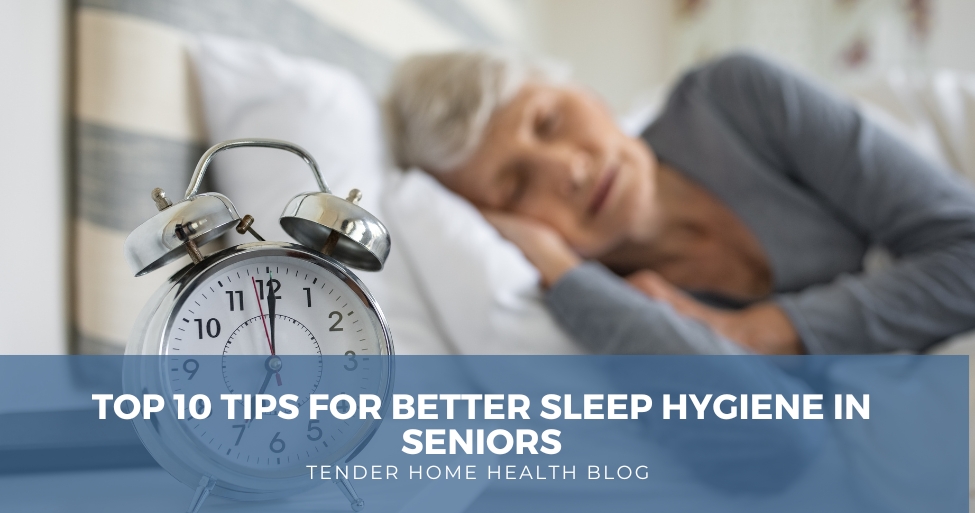Better sleep or the quality of our sleep becomes increasingly important for overall health and well-being. This is especially true during Mental Health Month, as adequate sleep plays a crucial role in maintaining mental wellness among seniors. Unfortunately, many seniors struggle with sleep disturbances due to various factors such as medical conditions, medication side effects, or changes in sleep patterns. In this article, we’ll explore the importance of sleep hygiene for seniors during Mental Health Month and provide ten practical tips to promote better sleep quality and overall wellness.
1. Maintain a Consistent Sleep Schedule
Seniors should aim to go to bed and wake up at the same time every day, even on weekends, to regulate their body’s internal clock.
2. Create a Relaxing Bedtime Routine
Establishing a calming bedtime routine can signal to the body that it’s time to wind down. Activities such as reading, gentle stretching, or listening to soothing music can promote relaxation.
3. Ensure a Comfortable Sleep Environment
Seniors should make their bedroom conducive to sleep by keeping it cool, dark, and quiet. Investing in a comfortable mattress and pillows can also improve sleep quality.
4. Limit Stimulants Before Bed
Caffeine, nicotine, and alcohol can interfere with sleep quality. Seniors should avoid consuming these substances in the hours leading up to bedtime.
5. Stay Active During the Day
Regular physical activity during the day can promote better sleep at night. Seniors should engage in activities such as walking, swimming, or gentle yoga to improve sleep quality.
6. Watch What You Eat and Drink
Heavy or spicy meals, as well as large amounts of liquids, can cause discomfort and disrupt sleep. Seniors should avoid heavy meals and excessive fluid intake close to bedtime.
7. Manage Stress and Anxiety
Stress and anxiety can make it difficult to fall asleep and stay asleep. Seniors should practice relaxation techniques such as deep breathing, meditation, or mindfulness to calm the mind before bedtime.
8. Limit Screen Time
The blue light emitted by electronic devices can suppress the production of melatonin, a hormone that regulates sleep-wake cycles. Seniors should avoid screens such as smartphones, tablets, and computers at least an hour before bedtime.
9. Address Underlying Medical Conditions
Certain medical conditions such as sleep apnea, restless legs syndrome, or chronic pain can interfere with sleep. Seniors should seek medical evaluation and treatment for any underlying health issues contributing to poor sleep quality.
10. Consider Professional Help
If sleep problems persist despite trying these tips, seniors should consult with their healthcare provider. A healthcare professional can evaluate their sleep patterns and recommend further interventions or treatments as needed.
Prioritizing good sleep hygiene is essential for seniors to maintain optimal health and well-being, especially during Mental Health Month. By following these ten tips, seniors can improve their sleep quality and enjoy better overall health and vitality in their golden years.
Source:
https://www.sleepfoundation.org/insomnia/treatment/what-do-when-you-cant-sleep





